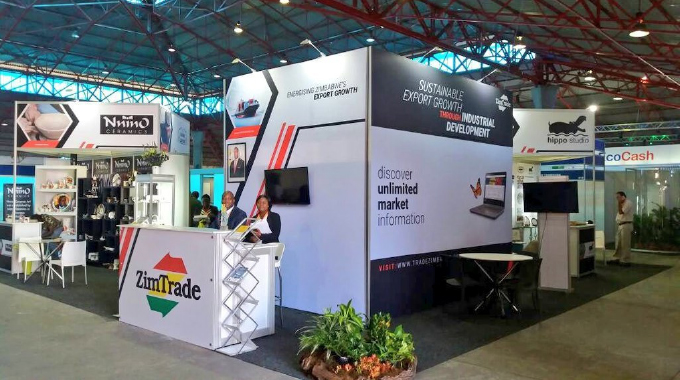Zim to tap into Moza agriculture opportunities

The Mozambican agriculture sector is set for a major boost after a number of Zimbabwean companies indicated their preparedness to support farmers in the neighbouring country with a range of farming products and services.
Zimbabwean businesses have been told, during the ongoing Maputo International Trade Fair (FACIM) where ZimTrade facilitated the participation of local companies, to take advantage of opportunities that are opening up in the Mozambican agriculture sector
The Government of Mozambique has prioritised the agriculture sector as one of the key drivers of economic growth and has embarked on a mechanisation programme that has opened opportunities for different products and services.
One of the exhibitors from Zimbabwe, Terraquip Mining and Engineering Services said the prospects for supporting farmers in Mozambique with water and fuel bowsers, dumber trailers and tractor-drawn towed graders were bright.
Sales and marketing manager of Terraquip Mining and Engineering Services, Tafadzwa Chidyandunge revealed that they were already discussing supply agreements with city councils in Mozambique.
“We have met town councils and departments that support farming activities and they have expressed interest in our products as they are wholly made in Zimbabwe, which will make it easy for farmers to access after-purchase support and spares.
“We are now finalising purchase agreements and once completed, this will be our first time exporting to Mozambique,” he said.
Apart from larger equipment, smallholder farmers in Mozambique will also be sourcing farming equipment such as ploughs, and harrows.
Sales and marketing manager of Bulawayo-based Mealie Brand, Eunice Chivunga said business partners in the country were keen on distributing Zimbabwean products across Mozambique, especially in rural areas.
“There is an emerging market for ox-drawn equipment, and we have identified partners who want to formalise supply relations.
“We are confident that Zimbabwean products will compete well in the market and work is already happening to enhance the visibility of our products across Mozambique,” she said.
The need to build climate resilient structures in farming communities has also seen a growing interest to source timber from Zimbabwe.
Some products like steel door frames and window frames do not do well in humid coastal areas such as Maputo where aluminium and timber products are most preferred due to reduced susceptibility to rusting.
Allied Timbers sales and marketing Manager, Talkmore Kanda said buyers were keen on importing transmission poles and roofing timber from Zimbabwe.
“More interest from buyers is in transmission poles and roofing timber and we are already receiving inquiries to supply.
“There is also scope for transmission poles for electricity projects and light poles for fencing farmers, and other timber that is required in farming operations,” he said.
In addition, farmers in Mozambique are looking to adopt climate smart hybrid seeds and other agro-based products and services which Zimbabwean companies have capacity to supply.
Tobacco Research Board (TRB) head of business development and marketing, Mavis Nyakachiranje, said the advanced seed programmes in Zimbabwe would help develop seeds that suit the climatic conditions in Mozambique.
“We have been engaged by potential business partners to find solutions that will address challenges related to climate and other environmental factors that affect crop production in Mozambique,” said Mrs. Nyakachiranje.
Further, there are opportunities for the services sector given that extension services and knowledge and skills are still limited in Mozambique.
The distributors of agricultural products also indicated preference to source Zimbabwe-produced personal protective wear such as overalls, work suits, and safety shows.
According to Triple Tee Footwear, who are also participating at the fair for the first time, they are finalising discussions on long-term supply agreements with leading distributors in the market.
Going forward, Triple Tee Footwear managing director, Enock Chitekedze, said tapping into bilateral trade agreements between Zimbabwe and Mozambique will lower their prices, making products competitive in the market.
“Most buyers were ready to engage with us as soon as they inspected our products as the quality is much higher than what they are used to and we are finalising discussions with distributors and direct business to business customers.
“What remains now is to find solutions that will make our prices competitive, and we are looking to leverage on trade agreements to lower our prices,” he said.
The Maputo fair is the largest annual exhibition programme that brings together buyers from across Mozambique to meet
National trade development and promotion agency, ZimTrade, facilitated for 15 companies to take part in the trade fair, which is the first time Zimbabwe has had a pavilion at FACIM.










Comments